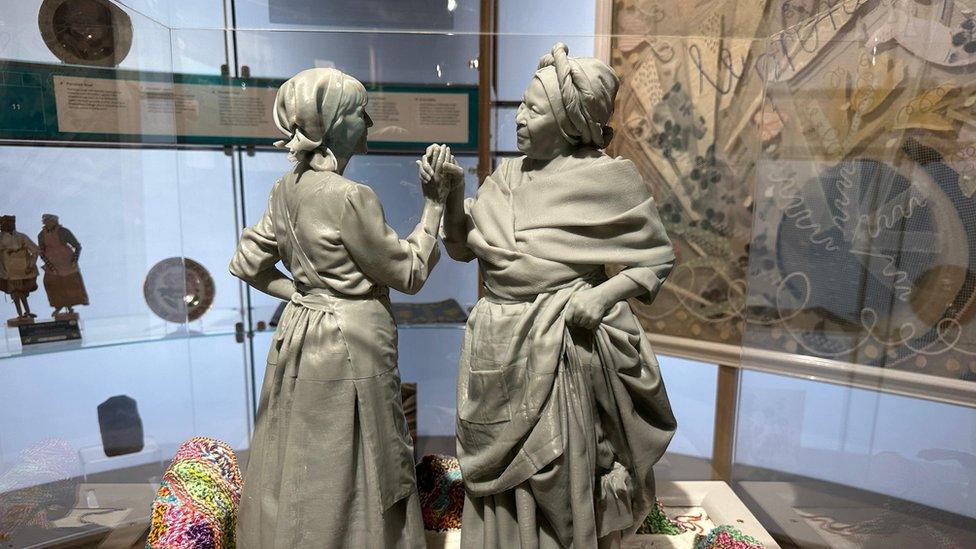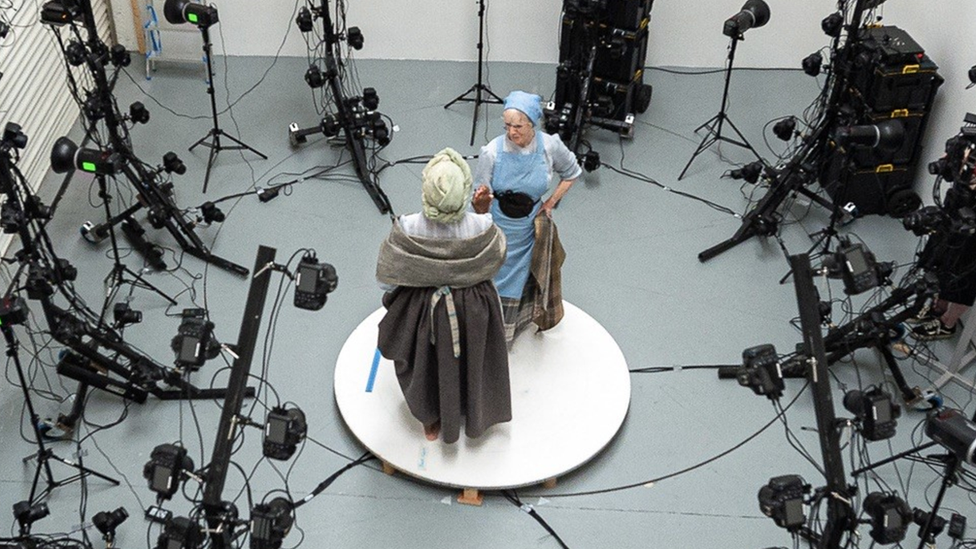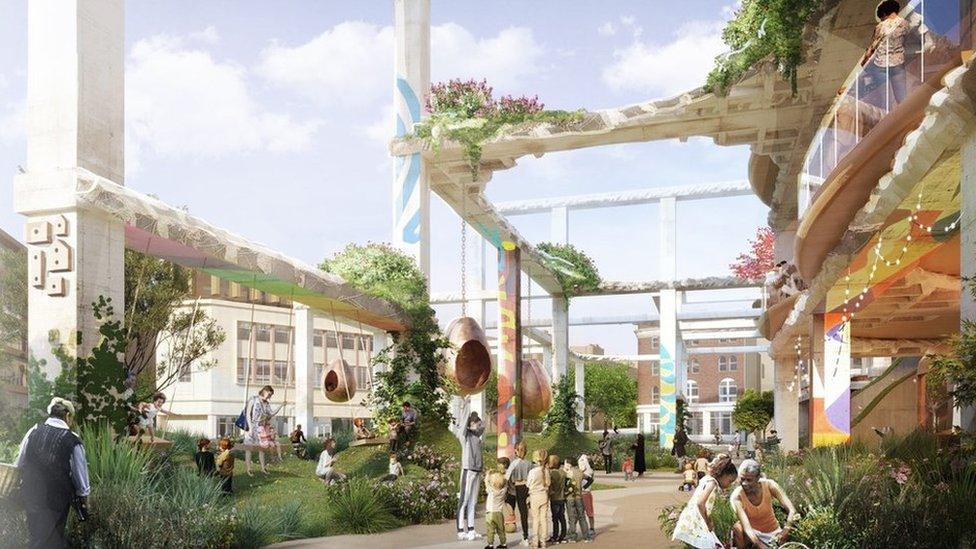Statue seeks to mark links between slaves and mill workers
- Published

A model of the statue can be seen at the Museum of Making in Derby
Plans have been unveiled for a statue highlighting the historical connection between women who worked in East Midlands cotton mills and those who grew the plant as slaves in the US.
The aim is for the sculpture to be installed as part of the regeneration of Nottingham's Broadmarsh area, once home to textile and dye works.
Its creators plan for it to be life-sized but this depends on funding.
The plans were unveiled at an exhibition in Derby.
The bronze statue - called Standing In This Place - is set to be placed in the Broadmarsh area in summer 2024 and will portray themes of sorrow, strength and resilience, its creators say.
It shows an enslaved black woman clasping hands with a white mill worker.
The statue is being created by sculptor Rachel Carter and the Legacy Makers community group, which works to highlight the links the 18th and 19th Century East Midlands cotton industry had with slavery.

Models pose for the statue
Ms Carter said so far a confirmed amount of £48,378 had been raised from a variety of sources including donors, businesses and a Just Giving page, external.
She said there was also a pending £70,000 grant application with Art Fund, and other smaller grant applications were pending too.
The size of the statue will depend on the amount of money raised - so far they have enough to make it half life-sized but will need £237,000 to make it fully life-sized.
"The Legacy Makers group and myself feel to be able to honour our ancestors, we would like to have them portrayed at life-size so are still looking for further donations," said Ms Carter.
"Every £1 helps the sculpture to grow a little bit more.
"We're looking at closing the fundraising at the end of October. Then whatever funds we have got will determine the size of the sculpture."
Ms Carter added: "This project began with an interest in discovering more about my female ancestors, who found themselves working in a cotton mill as children.
"I met members of the Legacy Makers group, who have been researching their African ancestors that were enslaved, trafficked and forced to labour in cotton fields, and together we have worked on the idea of a sculpture that acknowledges the undeniable connection of these histories, and this exhibition feels like we are one step closer to realising our vision."
Isalyn Martin, from Legacy Makers, said: "The Standing in This Place statue means so much to me as the statue symbolises Nottingham's female ancestors, both black and white, and their contribution to the wealth of the cotton industry.
"As a Nottingham resident, to see it it in the city will be very emotional and a joy to share with others."
The Standing in This Place exhibition, which opened on Friday, can be seen at Derby's Museum of Making until 7 January.

Follow BBC East Midlands on Facebook, external, on Twitter, external, or on Instagram, external. Send your story ideas to eastmidsnews@bbc.co.uk, external.
Related topics
- Published7 December 2021
